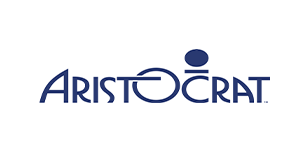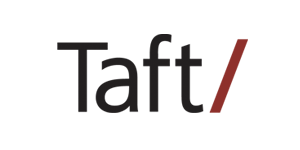- Home
- About IAGA
- Events
- Membership
- Sponsorship
|
Consultation Paper on the revision of the Macau Gaming Law and the questions it entails
Expert insight provided by ANTÓNIO LOBO VILELA, lawyer and author of the Macau Gaming Law Book (www.macaugaminglaw.com) The Macau government has just released its Consultation Paper on the revision of the Macau Gaming Law (“Paper”).[1]
According to the Secretary for Economy and Finance, “the revision is to ensure the sustainable, healthy development of the industry, maintain the industry competitiveness, support economic diversification and contribute to the building of Macau as a world’s tourism and leisure center.”[2] The Consultation Paper is unclear as to how it may achieve these objectives, and thus, raises more questions than the answers it seeks from its addressees, the Macau population not versed in gaming matters. According to the Paper, the main points[3] of the consultation are: 1. Number of concessions.
Although the Paper talks about “quality” and not "quantity" as a priority in the determination of the number of concessions, and states that “restricting the number of concessions does not mean reducing the competitiveness of the sector in the market, but, on the contrary, aim to ensure a balance between the stability of the market size of the gambling and the liberalization of the sector”,[4] one cannot determine for sure whether the intention is to decrease or increase the number of concessions.
On this point, the Macau government proposes to “study and review the number of concessions for the operation of casino games of chance.” Should this be a decision to be made by the population? Isn’t this an issue better addressed by experts in economic analysis? Should the concessionaires and subconcessionaires (“casino operators”) parent public traded companies be worried about a current gaming operator not securing a concession in 2022? What about casino operator’s employees, should they be concerned about losing their jobs?
Furthermore, the paper expressly states that subconcessions are to be prohibited. Will the current ones be turned into concessions, or will they disappear? Are “satellite casinos” considered subconcessions for this purpose, or will they continue to operate in limbo? 2. Concession period.
Although one cannot determine whether the intention is to reduce or increase the term[5], the Macau government proposes reviewing the concessions period.
What is an adequate concession period for the Macau government? Five years (so all Macau Chief Executives have a say in the most profitable business in Macau)?[6] Ten years? Fifteen years? Or twenty five years? Is the concession period to be set by the Macau population? Will the recent almost[7] 25 years renewal of Macau Jockey Club’s concession be taken into consideration in setting the concession period? 3. Increase in legal requirements concerning the oversight of concessionaires.
The Paper divides this point into:
a) Share capital of the concessionaires.
The Paper states the share capital of the concessionaires should be increased.
Serving as general guarantee of obligations to creditors,[8] the share capital is currently set at a minimum of 200 million[9] (equivalent to USD 25 million). Some casino operators have a much higher share capital.[10] Have any casino operators had any issues in paying creditors? Without a reference to what the Macau government believes should be the minimum amount of share capital, it seems complicated for the Macau population to decide. Should the MOP 1,500 million[11] (equivalent to USD 187.5 million) required for the Macau Jockey Club serve as base for the discussion of an acceptable figure? What about banks? Should their share capital also be increased as the amounts they hold on deposit are several times higher than the minimum share capital required by law?[12] And what about gaming promoters? Should they be allowed to continue holding a minimum share capital of MOP 25,000 (equivalent to USD 3,125)?[13] b) Managing director.
The Paper makes reference to the increase in the percentage of share capital held by shareholders of concessionaires who are Macau permanent residents.[14]
It is not clear whether the figure of the Managing Director[15] will disappear (namely, because the 10% share capital held by him is merely in name), or was just used as an example of a shareholding position held by Macau permanent residents. It is also not clear what percentage of the share capital will be held by the Macau permanent residents. Since all of the current casino operators are (indirectly) public companies, any Macau resident who so desires is free to purchase shares if they so wish. Is the Macau government suggesting special or reduced price shares? Book value? Are such requirements consistent with public listing and exchange requirements? Or it is just a question of balance in the number of company directors who need to be Macau permanent residents as stated by the Secretary for Economy and Finance?[16] c) Distribution of profits.
The Macau government suggests the definition of specific requirements for the distribution of profits to shareholders and the need for prior authorization from the Macau government for this purpose.
Without explaining these requirements, the Macau government seems to intend to become involved in fundamental management decisions. If this level of control is to be in place, why does the Macau government not decide to operate casino games of chance directly? And how can this be reconciled with the generous tax exemptions that casino operators have enjoyed since 2002? Does this entails a revision of the Macau Commercial Code? 4. Guarantees to employees.
The government of Macau intends that the concessionaires “constantly and proactively” impose “measures to ensure access to employment for local workers, including measures to promote professional advancement and horizontal mobility, providing workers with adequate professional training and sufficient, to boost the professional development of local workers.”
How this will be imposed is a mystery. What are the expectations of the Macau government beyond what the casino operators have done all these years? And what is the question for the population to answer?
5. Strengthening supervision for concessionaires, gaming promoters (junkets), and their collaborators.
According to the Paper, this point is directly related to assessing suitability and financial capacity of the concessionaires.
Isn’t it is more a matter of enforcement than of legal command? Although the law as drafted[17] conforms to the highest international standards, the Macau government never regulated – as required by law[18] – the casino key employees.
Is it for the Macau population to know and say how the supervision can be strengthened?
6. Introduction of government delegates.
The intention is to go back to the past and re-introduce the concept of the government delegate.[19] In doing so, it appears that the Macau government has not been able to supervise the casino operators properly.[20]
It is also a form of interference in corporate life, which does not seems justified by any of the reasons invoked in the Paper (mainly when the government has not yet regulated the casino key employees as required by law)[21]. It is a concept which is not consistent with the reality of 21st-century companies. It also raises delicate issues: what qualities, qualifications and powers should the government delegate have, and who determines? Will the government delegate be vested with powers to veto decisions of the board of directors? Will he have a de facto veto in any event? Will his suitability be scrutinized by the American regulatory entities concerning the casino operators that have American interests?[22] Will he earn a civil servant salary, or will it be on the payroll of the supervised company? Should the shareholders of publicly traded companies be concerned with such a requirement and are such requirements consistent with the rules and requirements of the various stock exchanges on which these companies are listed? What impact will such a requirement have on the ability of companies to finance their operations?
7. Promotion of non-gaming projects.
The Paper starts by noting that there are no “uniform understandings in society regarding the definition of “elements not related to gaming”.” After referring to Macau as a “World Tourism and Leisure Centre,” the Macau government does not seem to have yet determined what these projects are. It just refers to “support for the promotion of sports tourism and cultural tourism, support for the introduction of gaming-related manufacturing industries to be installed in Macau, the exploration of new activities, the holding of different types of events and international or renowned competitions, will be the main elements to consider when carrying out studies on non-gaming projects in the future.”
What question is asked for the population to speak out? And if the Macau population believes that building and maintaining, for instance a fish market, is a non-gaming project, will the Macau government consider accepting such a view and licensing the casino operators for this activity? 8. Social responsibility.
In this regard, after discussing what “social responsibility” should be and not reaching a conclusion, the Macau government considers that it be stipulated that concessionaires must assume, namely, the following social responsibilities:
1. Providing support for the development of SMEs;
2. Providing support to local industries;
3. Ensuring labor rights, namely concerning in-service training and professional advancement of local workers, maintaining the effectiveness and guarantee of the workers’ welfare system;
4. Hiring of individuals with disabilities or rehabilitated;
5. Providing support for actions of a philanthropic nature;
6. Providing support for exchange activities in the educational and cultural areas and scientific study.”
What is the question? How in practice will all this work? Shall all these be considered casino operators’ social responsibilities?[23] Does this mean that the already huge contribution to social responsibility initiatives by current casino operators do not suffice? Aren't most of these social responsibilities public tasks? Should public tasks be transferred to private entities? 9. Explicit stipulation of criminal liability and the administrative offenses regime.
The Macau government will be creating two new crimes in the Macau legal system:
a) The “Crime of depositing money or other amounts illegally accepted”, punishable by imprisonment up to 5 years or fine.
This crime already exists in the Macau legal system, and is, by the way, the only crime provided for in the Macau’s Financial System Act.[24]
b) The Crime of simple disobedience to those who, being obligated, prevent the access or permanence of DICJ personnel in places subject to inspection.
It will also establish, as required by law,[25] the long due administrative offenses regime for the gaming sector. The consultation period will be 45 days (September 15 to October 29), with several consultation sessions taking place, one for the casino operators, and gaming promoters (September 20) and four for the public in general (September 29, October 10, 13 and 19). Although the Portuguese language is also official, according to the DICJ website, only the September 29 session will have a translation into Portuguese. The Macau government should compile all opinions and suggestions received and make them public (as the Legislative Assembly did back in 2001). Only in this way will it be possible for the Macau population to confirm whether the revision of the law was carried out following these opinions and suggestions. [1] The paper can be can be consulted in the Portuguese and Chinese versions at: http://doc.dicj.gov.mo/ebook/ebook_final.pdf. [2] Government briefing on the public consultation of the revision of the Macau Gaming Law (September 14, 2021). [3] The Macau government did not disclose what the minor points are. [4] See page 33. [5] Currently the maximum term is 20 years with the possibility of one or more extensions up to 5 years – see Macau Gaming Law, Article 13. [6] As we advocated in the past – see António Lobo Vilela, Outlining renewal scenarios for the gaming concessions, AGBriefings - Jurisdiction Updates, May 2014, p. 19, at https://issuu.com/agbrief/docs/agbriefings_-_may_2014_-_g2e_asia_e. [7] To be precise, 24 years and 6 months (March 1, 2018 to August 31, 2042) – see the 2018 amendment to the Macau Jockey Club concession contract at https://bo.io.gov.mo/bo/ii/2018/15/extractos.asp#dsf1. [8] And not to ensure future concessionaires to have adequate operational ability and financial capability to support non-gaming development as stated by the Secretary for Economy and Finance in the briefing on the public consultation of the revision of the Macau Gaming Law. [9] See Macau Gaming Law, Article 17(1). [10] See António Lobo Vilela, Macau Gaming Law Annotated with Comments, Volume II – Articles 11 to 21 (Macau, 2020), p. 327, at www.macaugaminglaw.com. [11] To be met by December 31, 2023 – see the 2018 amendment to the Macau Jockey Club concession contract cited, Clause 2(5). [12] The minimum share capital for banks is MOP 100 million (equivalent to USD 12.5 million). As to the minimum share capital required by law to other Macau entities, seeAntónio Lobo Vilela, Macau Gaming Law Annotated with Comments, Volume II, p. 325-326. [13] See Administrative Regulation No. 6/2002, of 1 April (Gaming Promotion Regulation), Article 4, in conjunction with the Macau Commercial Code, Article 359(2). [14] Macau permanent residents are the persons referred to in Article 1 of Law No. 8/1999, of 20 December (Law on Permanent Resident and Right of Residence in the Macau Special Administrative Region). [15] All gaming companies must appoint a Macau permanent resident who owns 10% or more of the share capital as Managing Director – see Macau Gaming Law, Article 19(2). [16] In the briefing on the public consultation of the revision of the Macau Gaming Law, the Secretary for Economy and Finance stated that to ensure the future concessionaries are developed in Macau for Macau, the capital ratio of ‘executive directors’ (常務董事) who are Macau residents would be required to increase. [17] See Macau Gaming Law, articles 14 and 15, and Administrative Regulation No. 26/2001, of 29 October (Public Tender Regulation), Articles 6 to 16 (as to suitability), and Articles 17 to 28 (as to financial capacity). [18] See Administrative Regulation No. 26/2001, of 29 October (Public Tender Regulation), Article 101(1). [19] All Macau public utilities companies have a government delegate. The concessionaires of all other types of gambling also have a government delegate. STDM, the former holder of the casino gaming monopoly between 1962 and 2001, also had one. [20] In the briefing on the public consultation of the revision of the Macau Gaming Law, it was stated the Macau government would have direct supervision on day-to-day operations of future concessionaires through appointed representatives, with a view to protect the industry development. [21] See note 18. [22] See Nevada Revised Statutes 463.165 in relation to “persons having significant influence over gaming operation of licensee,” and 463.715. [23] On corporate social responsibility to be imposed to casino operators, see António Lobo Vilela, Casino Gaming in Macau after 2022: New Beginning or Mere Continuity?,IMGL Magazine, Summer 2021, p. 15. [24] See Article 121, which reads: “Any person who accepts deposits or other repayable funds from the public, with or without interest, in his name or that of a third party, without being authorized under the terms of this Law or special legislation, shall be liable to imprisonment for a term not exceeding two years.” See, also, António Lobo Vilela, The liability of Macau casino operators for the activity rendered inside casinos by gaming promoters (junkets) – an update on the current litigation, Gaming Law Review, Volume 25, No. 2, March 2021, p. 72. [25] See Macau Gaming Law, Article 43. |





















